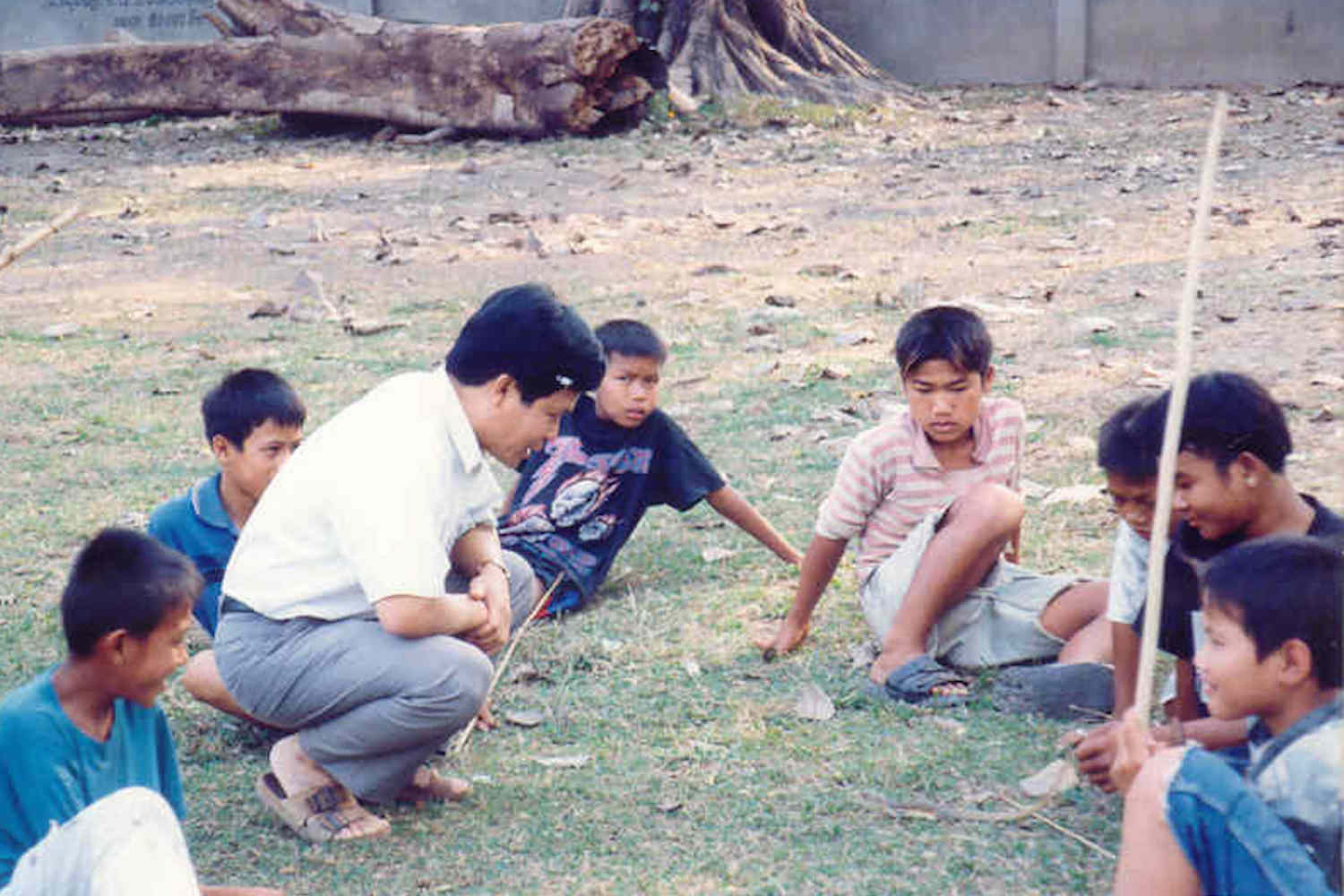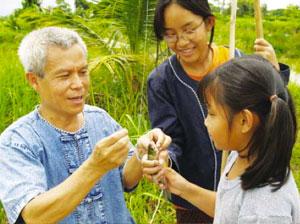We need to have a balanced development. Balance between economic development, social development, environmental harmony, and most important of all is the development of our young people. They are the cornerstone and the future of our country.
[wpvideo ieXiWJER]
Sombath Somphone, in Country Boy Forever, a video produced by PADETC in preparation for his receiving the Magsaysay Award for Community Leadership in 2005.




 Our children have no time to exercise their innate curiosities and capacities to explore their world and its links with nature. They have no encouragement to develop their innate emotions of love and care of life and for nature. Time spent by children for nature walks and studying in the open are now replaced by spending time either in extra tuition classes (more cramming and rote learning), in shopping malls, in digital gaming parlors, or in front of the TV. The models of success for children are largely determined by what money can buy. No wonder, their aspirations are all geared around materialism and short-term gratification, and eventually mindless greed.
Our children have no time to exercise their innate curiosities and capacities to explore their world and its links with nature. They have no encouragement to develop their innate emotions of love and care of life and for nature. Time spent by children for nature walks and studying in the open are now replaced by spending time either in extra tuition classes (more cramming and rote learning), in shopping malls, in digital gaming parlors, or in front of the TV. The models of success for children are largely determined by what money can buy. No wonder, their aspirations are all geared around materialism and short-term gratification, and eventually mindless greed.

